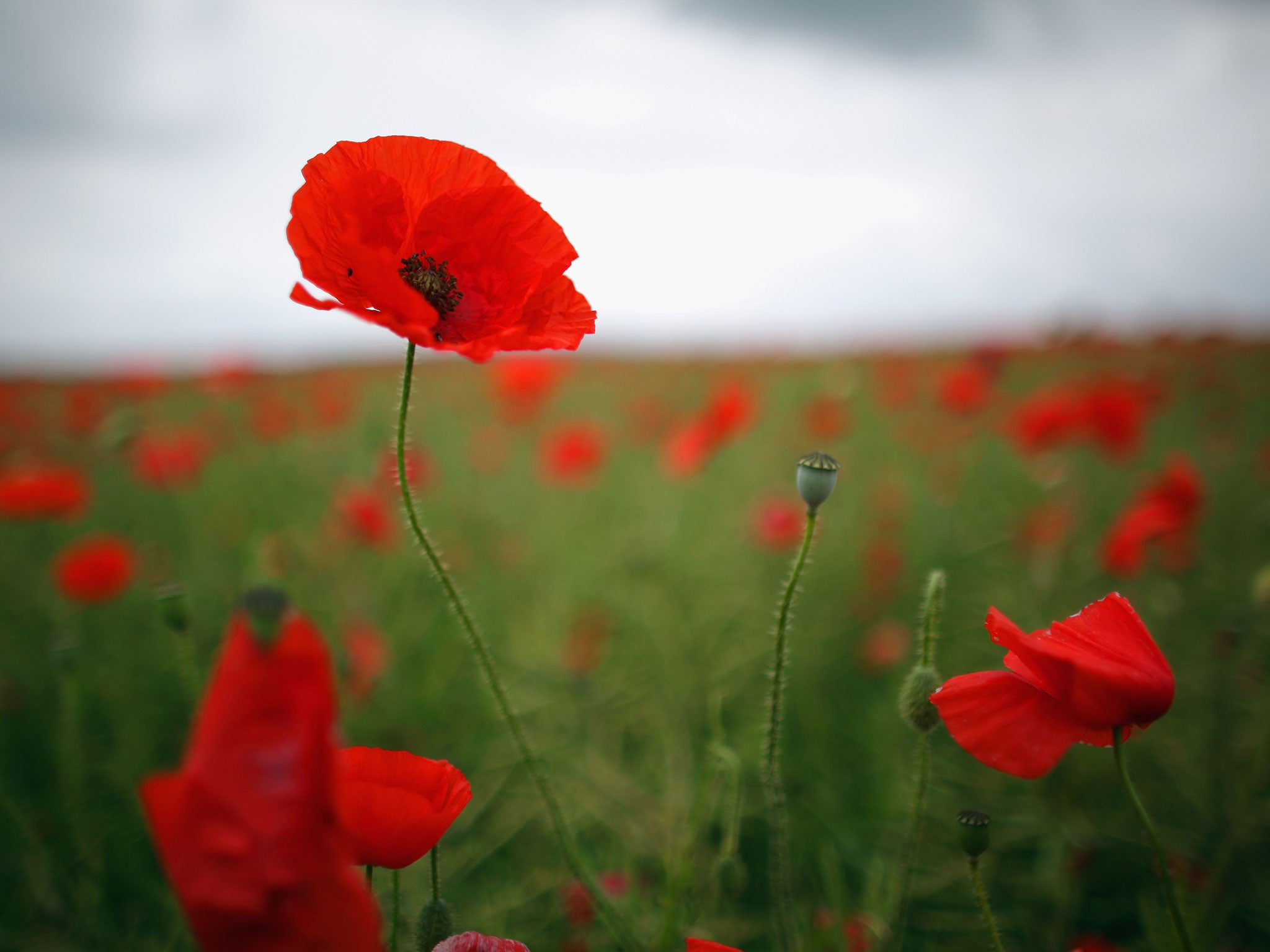Muslims remember too: The poppy hijab will combat hatred on both sides
It has been one hundred years since Sepoy Khudadad Khan became the first Indian soldier to win the Victoria Cross, one of the 400,000 Muslims who fought in the First World War

Your support helps us to tell the story
From reproductive rights to climate change to Big Tech, The Independent is on the ground when the story is developing. Whether it's investigating the financials of Elon Musk's pro-Trump PAC or producing our latest documentary, 'The A Word', which shines a light on the American women fighting for reproductive rights, we know how important it is to parse out the facts from the messaging.
At such a critical moment in US history, we need reporters on the ground. Your donation allows us to keep sending journalists to speak to both sides of the story.
The Independent is trusted by Americans across the entire political spectrum. And unlike many other quality news outlets, we choose not to lock Americans out of our reporting and analysis with paywalls. We believe quality journalism should be available to everyone, paid for by those who can afford it.
Your support makes all the difference.Remembrance brings Britain together each year – and presents each of us with our own personal choices about how we choose to participate or not. I do choose to wear a poppy to mark the service that so many have given to their country. I see no contradiction between that and my being strongly opposed to particular conflicts, such as the war in Iraq. After all, the poppy itself arose as a symbol of loss, commemoration and remembrance from one of the most controversial wars in British society, a century ago.
At the Islamic Society of Britain, we have long been engaged with efforts like “We Remember Too”, working across all faith groups to make sure that people know that this story of service and commemoration is one which unites faiths in Britain today.
This year, we have also launched a poppy headscarf as another way to tell the story of Muslim participation in Remembrance. Designer Tabinder-Kauser Ishaq, a talented young student at the London College of Fashion, has done a fantastic job of producing the design. We have already seen its versatility with different women choosing to wear it in different styles, no doubt each having their own subtly different personal view of its meaning and message.
We launch the headscarf today because it marks one hundred years since Sepoy Khudadad Khan became the first Indian soldier to win the Victoria Cross. He was one of 400,000 Muslims who fought in the First World War a century ago. Yet just 2 per cent of people in Britain know that. Most people – Muslim or not – are surprised at the scale of Muslim contribution in 1914.
I think one principle should be clear: everybody should make their own choice. There are no loyalty tests here. But I do find it a shame that many people are surprised to hear that many British Muslims take part in Remembrance today.
There is strong evidence of how widespread our quiet participation in commemorations is. Academic research data from the Ethnic Minority British Election Study shows that 62 per cent of ethnic minority Britons wear the poppy, including half of those from Pakistani and Bangladeshi backgrounds. That adds up to a million British Muslims who quietly wear a poppy. Others will choose not to.
Some of this quiet commemoration currently gets drowned out by the noisier and more polarising voices in our society – whether that’s the hatred of the EDL and Britain First, or from extremists who claim to speak in the name of my religion.
Most people in Britain, our friends and our colleagues who know and work with us everyday, know that these voices aren't representative of modern Britain. Yet I do worry about the impact of a lack of contact between different communities, leading some to fear that we can’t share our society together.
It may be much harder for constructive voices, who better represent the everyday lived experience of British Muslims in Britain today, to attract anything like the attention of those who shout much louder. We should tell our stories too. We should be confident and insist that our voices can count. And we should each make our own choices about how we want to contribute to the society that we are proud to call home.
Sughra Ahmed is the President of the Islamic Society of Britain
Join our commenting forum
Join thought-provoking conversations, follow other Independent readers and see their replies
Comments